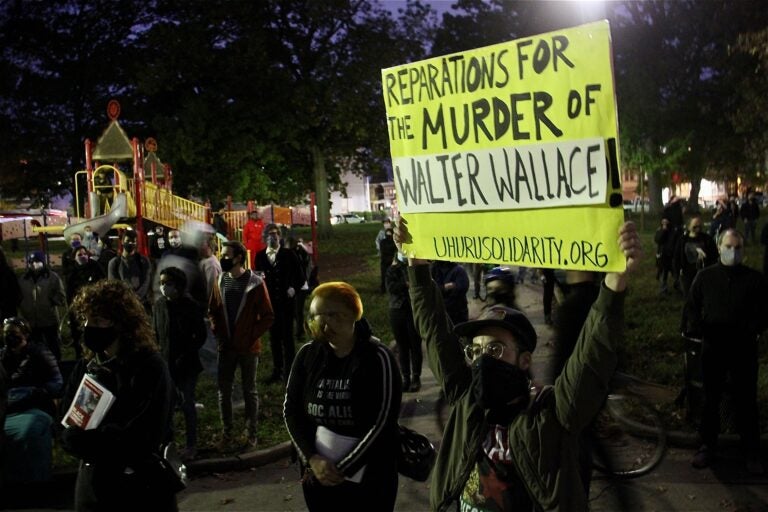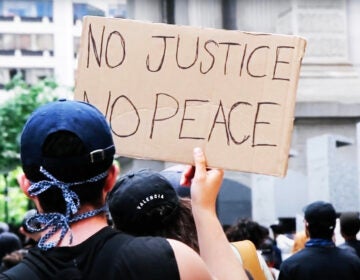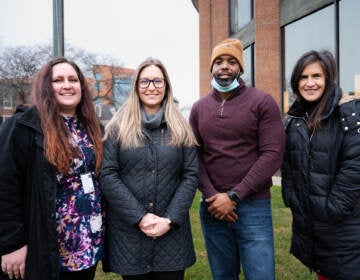City launches ‘collaborative dialogue’ series to strengthen police-community relations
Mayor, police seek open dialogue with community on police reform.

A crowd gathers at Malcolm X Park to protest the police shooting of Walter Wallace Jr. (Emma Lee/WHYY)
In the wake of the police killing of Walter Wallace Jr. in West Philadelphia, the city is launching an engagement series rooted in strengthening police-community relationships, as well as having “collaborative dialogue” on police reform.
“In my administration’s and the Philadelphia Police Department’s efforts to make meaningful changes, moving forward will require actively listening to the community and centering the experiences of those who have been treated in a manner that falls short of our city’s ideals,” said Mayor Jim Kenney in a statement.
Circles of Truths, the first event in the series, is scheduled for Nov. 30 at 6 p.m. The two-hour virtual conversation will be facilitated by city officials. The goal is to offer a safe space for “grief, listening, sharing and openly addressing and repairing harm,” according to the city.
During the event, residents will be divided into breakout sessions where they’ll discuss the future of public safety in Philadelphia, home to the country’s sixth-largest police department. Police Commissioner Danielle Outlaw, rank-and-file officers, and leaders of the Department of Behavioral and Intellectual disAbility Services will also participate, among other city officials.
“We found it very important to, in a sense, flatten power dynamics so that everyone is interacting and sharing as residents of the city of Philadelphia,” said Ajeenah Amir, director of the Mayor’s Office of Public Engagement, which is hosting the session as part of the city’s Pathways to Reform, Transformation, and Reconciliation initiative.
Circles of Truths is at capacity, but parts of it will be live-streamed on the Office of Public Engagement’s Facebook page. Amir said the goal is to host monthly sessions beginning next year.
The event comes more than a month after two police officers fatally shot Wallace steps from his family’s home on the 6100 block of Locust Street. The 27-year-old was in the midst of a mental health crisis when they arrived that afternoon.
Disturbing bodycam footage from the controversial encounter shows Wallace with a knife as he emerges from the house and onto the block. He was not rushing the officers at the time they opened fire from several feet away in broad daylight.
Wallace’s death, now the source of an internal investigation, sparked a second wave of protests against police brutality, police use-of-force, as well as the way the department handles calls that have a mental health component.
On Nov. 4, the same day the city released the bodycam footage, Outlaw announced the police department would dedicate resources to connecting more behavioral health specialists to police radio. Outlaw said she would also increase crisis intervention training for all officers.
Weeks before Wallace’s killing, the city announced a new program designed to improve the police department’s response to 911 calls that appear to involve a behavioral health crisis. As part of the initiative, a clinically trained behavioral health provider is embedded with the 911 radio room to accurately label calls involving someone in mental or emotional distress.
There was no behavioral health specialist in the police radio room the afternoon that Wallace was shot.

Get daily updates from WHYY News!
WHYY is your source for fact-based, in-depth journalism and information. As a nonprofit organization, we rely on financial support from readers like you. Please give today.






